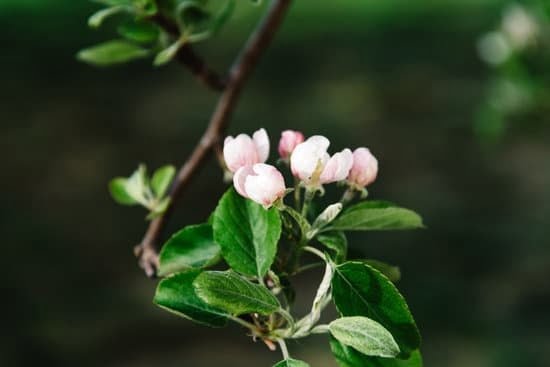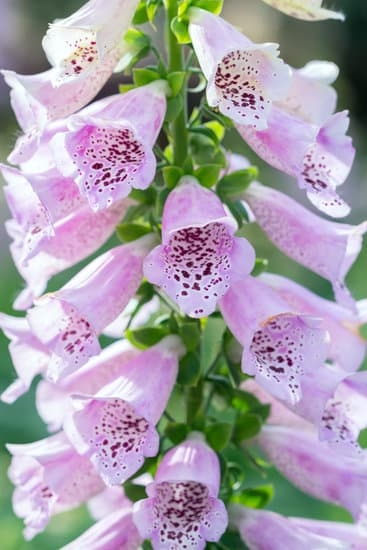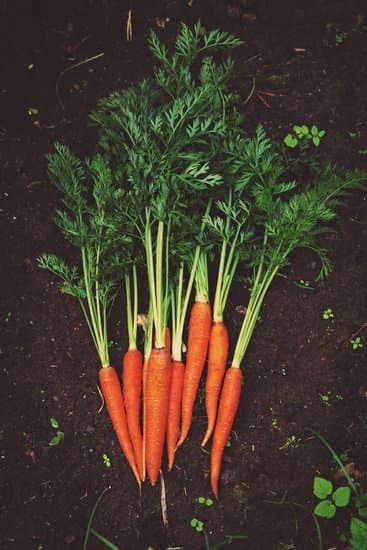Introduction
Gardening talks can be extremely beneficial for both experienced and new gardeners alike. Through discussions of various gardening topics, participants can acquire more information on how to produce a thriving garden. Discussions about different planting techniques and best practices for water conservation are just two of the many topics that can be discussed in a gardening talk. Other potential topics may include pest management strategies, composting methods, soil enrichment tips, and the use of native vegetation in landscaping projects. Additionally, other relevant issues such as food insecurity and environmental sustainability could also be touched upon during a gardening talk. By engaging in conversations on these diverse topics, attendees of the talk can come away with valuable insight into planning and growing beautiful gardens.
Identifying Relevant Topics
One way to identify relevant gardening topics for talks is to research the latest trends in gardening and emerging topics. There are many publications dedicated to gardening which can provide valuable insight into what topics are currently popular, or becoming more popular in the near future. It can be helpful to stay informed about developments in technology and new tools that professional gardeners are using, as well as the types of plants and growing techniques being used. Additionally, it is important to think about how any current events, climate change, or social issues may influence the industry and how individuals tend their gardens. Finally, do not forget gardening hobbyists; think about topics related to different ages and levels of experience so that you can reach a wide audience with your talk.
Garden Design Basics
Gardening topics for talks can cover a vast range of subjects, from tips and techniques to garden design basics. Garden Design Basics: An Overview of Design Strategies and Styles is an excellent talk topic as it can help gardeners determine the best style and strategy for their outdoor space. During this talk, attendees could learn about different essential elements of garden design such as pathways, planting areas, focal points, lighting, and more. Discussions could be had on the types of materials to use for each element (i.e., natural stone, pavers) that best fit the particular climate or reflection of the desired style. Additionally, gardeners could gain insight into plant choices for each section to create a purpose-driven style in their gardens such as cottage or modern minimalism. Attendees could also learn how to use hardscaping features such as raised beds, gazebos, water features like fountains and ponds to complement the overall look they are hoping to achieve in their space. Talks featuring garden design basics can give attendees the confidence needed to properly plan and execute an amazing outdoor space that reflects their personal taste with ease.
Plant Selection Factors
When selecting plants for a garden, there are a number of important considerations. This can include climate and soil type, the size/shape of the garden area, how much sun/shade it receives, local temperature fluctuations and precipitation levels. One must also consider what type of plants will be most suitable for the aim of the garden – aesthetic appeal, growing produce, providing shade or shelter from the elements. Additionally, one needs to take into account the potential maintenance needs for each plant – pruning and trimming requirements, water requirements and pest control. One must also necessitate what other gardens may have that might help determine which plants thrive best in the chosen location. Plant selection should not only consider environmental factors but also any personal preferences with respect to colour and texture in order to create an inviting space that meets individual needs.
Garden Care Best Practices
Garden care best practices is an important topic for a talk as it helps to ensure that those looking to maintain their gardens have the knowledge and skills needed to do so successfully. This can include information on proper soil preparation, choosing the right plants and flowers, controlling weeds, ensuring adequate amounts of sunlight and water are reaching the plants, and information on pest control options. Additionally, this talk can cover information regarding how to best protect one’s garden during changing climates or seasons. Understanding when to add compost or use specific tools will be beneficial in creating a thriving garden environment throughout the year. Furthermore, this talk may help those looking to reduce their environmental impact by using natural solutions where possible.
Gardening Tips
Gardening tips are great topics for talks and can help engage audiences. Share your successes along with gardening tips that you find useful, such as the best way to establish plants and protect them from pests, choosing the right soil and fertilizer, growing season timing, setting up an irrigation system, mulching techniques, dealing with common plant diseases, and pruning advice. If you have a large audience or streaming event, provide relevant links to additional information so they can look something up on their own if they wish. Also include collaboration between gardener and wildlife when discussing garden maintenance; this could include birdbath mixtures of water to other water features in the garden/yard as well as providing habitat for butterflies or frogs. Discuss organic approaches to gardening such as companion planting methods that not only protect plants but also attract pollinators. Finally, discuss the importance of raised bed gardens – their purpose and how to select the materials that work best in addition to suggestions for maximizing space – vertical gardening options, what areas should be left untouched for natural wildlife habitats or composting spaces in order for beneficial insects or pollinators. These are just the tip of the iceberg when it comes to creating a conversation around gardening tips.
Pest Control Approaches
Pest control is an essential part of gardening, as many pests can cause significant damage to a garden’s plants. Talkers could discuss preventative approaches to pest control, such as utilizing companion planting, strategic mulching practices and upkeeping good garden hygiene. They could delve into advice for identifying common garden pests, discussing how to determine the difference between helpful insects like ladybugs and more harmful ones like aphids. They could even discuss ways to efficiently remove large infestations without resorting to chemical treatments like pesticides. Additionally, talkers could explore alternatives to chemical treatments including using all-natural ingredients from the kitchen, such as garlic or tea tree oil. They could also introduce gardeners to approaches that don’t utilize any chemicals at all such as physical removal techniques, biological pest control (utilizing other predators and beneficial bugs), setting out traps and covering the plants with protective barriers. With so many safe and effective solutions available, it’s no wonder why pest control discussions have become so popular amongst gardeners!
Problem Areas
Problem Areas: Strategies for Overcoming Challenging Areas in the Garden is a great topic for a talk about gardening. This topic could cover a variety of topics including how to manage areas affected by extreme temperatures, soil composition, or pests and disease. An overview of basic principles such as soil amendment and pH tolerance, crop rotation, mulching techniques, and companion planting could be included as well. Additionally, the talk could focus on solutions specific to certain regions or climates such as dealing with droughts in dry areas or weed control in humid climates. Another possible angle would be discussing seasonal challenges like preparing summer gardens during springtime or adapting to weather changes during the winter months. Finally, presentations on managing common garden pests can also provide useful tips for any gardener.
Soil Health & Management
Soil health and management is an important topic of discussion in the world of gardening. Healthy soils are essential for successful gardens because they foster a diverse microbial life beneath the surface that helps plants and vegetables thrive. When discussing soil health and management, topics like understanding basic soil chemistry, testing for pH and nutrient levels, improving aeration and drainage, appropriate irrigation techniques and methods of fertilizing without damaging the environment should be addressed. Additionally, people should discuss how to reduce compaction of soils and how to maintain healthy levels of organic matter in a garden’s soil. Other points may include proper weed control as each type has its own particular needs; different methods to cultivate healthy populations of beneficial organisms in the soil such as composting or mulching; ways to nurture healthy, nutrient-rich microbes (e.g., inoculating it with certain bacteria); and environmentally friendly practices when dealing with pests or diseases.
Composting Options
Composting can be an incredibly beneficial addition to any garden, as it helps contribute to the health of the soil and act as nutrient-rich fertilizer for plants. When discussing composting options, you can introduce your audience to the range of techniques that are available. From traditional methods like composting through turning organic matter in a bin, sheet mulching and vermicomposting – which uses worms- there are many different techniques for creating compost out of organic waste. You could also discuss how each method differs; for example, sheet mulching is often seen as less labor intensive whereas vermicomposting takes some extra monitoring. Additionally, you could provide advice on how to source good materials and what temperatures work best when composting. Don’t forget to give tips on how to speed up or slow down the process depending on your circumstances. It’s important to consider both the environment and local regulations when explaining proper composting strategies.
Growing Your Own Produce
Growing your own produce can be a rewarding and satisfying experience, but can often require a surprising amount of work. When planning your garden space, pay attention to the size, soil quality and sun exposure. And while there are numerous advantages to growing your own food, here are some practical tips to help ensure you’re making the most out of your harvest:
• Start small, with easy-to-care-for crops such as radishes, greens and bush beans. Once you’ve become comfortable with these items, you can start expanding ranges of plants.
• Consider intercropping: planting two types of produce in adjacent rows or beds. This will not only provide additional support for each plant but also keeps pests at bay. Some great examples include bush beans next to corn, strawberries alongside borage and lettuce near carrots.
• Practice correct spacing between plants to maximize their growth potential and give them access to enough light, water and nutrient uptake.
• Make sure all plants get enough water; remember that it is better to water deeply less often than shallowly frequently. Allow soil to dry adequately before watering again in order to optimize production and avoid disease problems like root rot. If you have sandy soil, however, watering more frequently may be necessary due to rapid evaporation.
• Fertilize regularly according to the specific needs of your plants using a high-quality fertilizing mixture such as fish emulsion or compost tea. Avoid chemical fertilizers when possible due to their potential harm on beneficial insects and other wildlife in the surrounding environment.
• Utilize mulches such as straw or leaves around vegetable crops in order keep soil evenly moist and reduce weeds; also consider cover cropping during fallow months when appropriate for erosion control measures.
• Harness natural pest deterrents like companion planting as opposed to heavily reliance on pesticides which can paste through health risks when consumed thickly sprayed fruits or vegetables; maintaining healthy pollinator populations is also critical for preserving yield quality and quantity within garden settings
Planning & Creating Your Garden
Planning & Creating Your Garden: Maximizing Your Resources for Your Garden is a great topic for a gardening talk. When planning your garden, it is important to consider the resources available to you, such as the location, space, and light conditions that are available. You will want to choose plants and shrubs that require minimal maintenance and ones which can tolerate the weather conditions in your area. It is also beneficial to decide if you want to use organic gardening methods as this can help you impact the environment in a positive way. Additionally, you may wish to consider how you can attract wildlife into your garden by incorporating specific plants and features such as birdbaths and water features. All of these decisions can play an important role in creating your perfect, sustainable garden.
Conclusion
Gardening talks can be a great way to share tips, tricks, and useful information about gardening. There are a variety of topics to choose from when selecting a thought-provoking theme for this type of presentation. Popular topics can center around the benefits of gardening such as physical health, mental wellbeing and stress reduction, the environment and sustainability, nutrition, or even the economics of home growing. Another sector that may be interesting to explore is education – considering how many schools now include gardening in their overall curriculum.
When preparing for a gardening talk, it’s important to take into account who your audience is and tailor your presentation accordingly – including jokes or anecdotes that appeal to them as much as possible. There should also be an emphasis on delivering a call to action; provide your listeners with achievable gardening tasks along with resources where they can expand on their knowledge afterwards.
In conclusion, giving garden talks has many benefits – helping individuals to develop vital skills in communication, public speaking and the practical side of teaching others about the subject matter that interests you most. By doing so, you will also get feedback from others who may have stories of successes or failures they can relate which could help everyone become better at gardening. With more people understanding the importance of being informed on farming techniques, food safety and nutrition, getting started with garden talks within your local community is easier than ever before!

Welcome to my gardening blog! I am passionate about plants and enjoy sharing my knowledge and experiences with others. In this blog, I will write about everything related to gardening, from tips on how to get started to updates on my own garden projects.





